







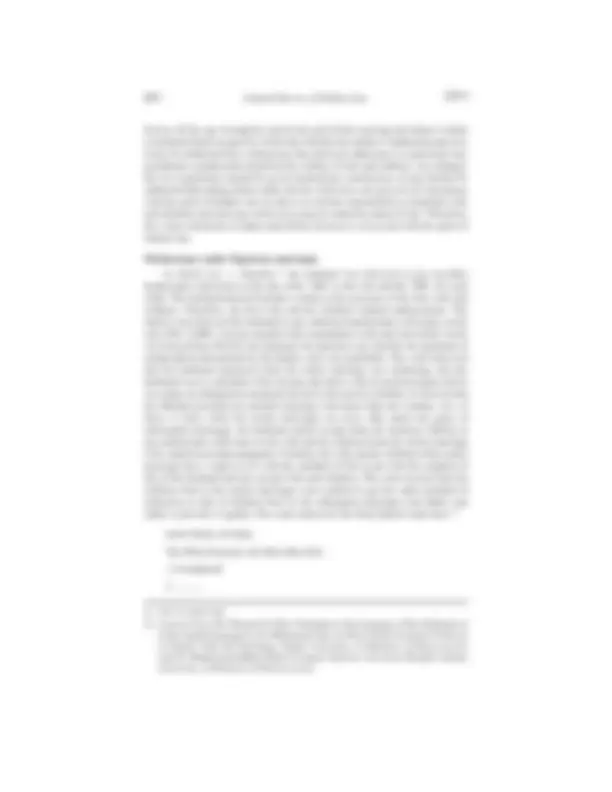
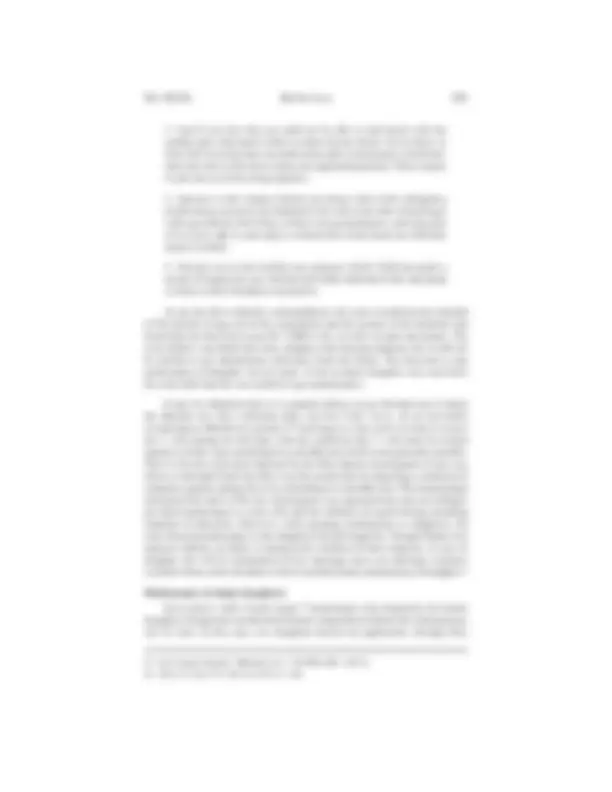




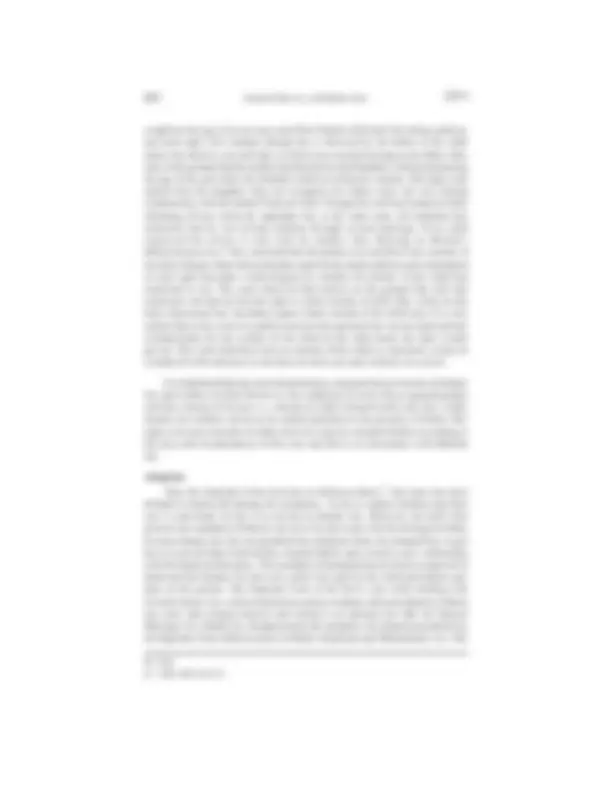
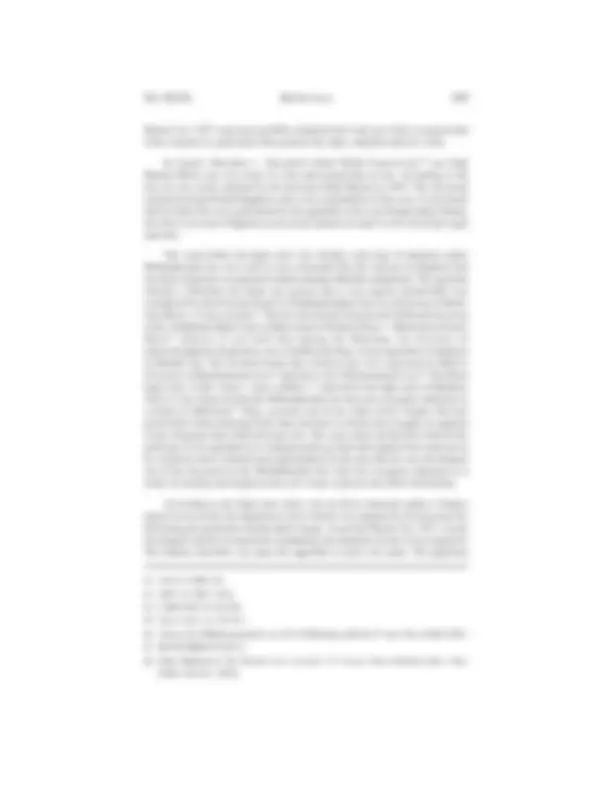
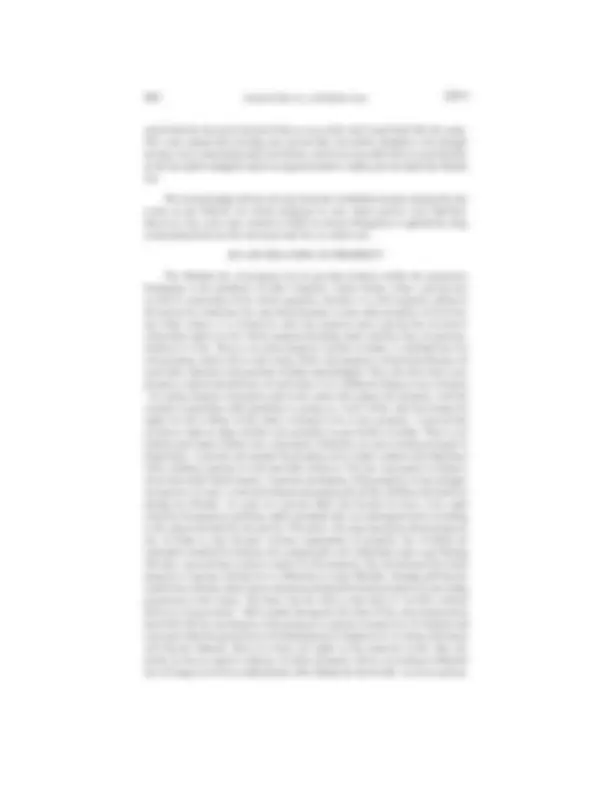
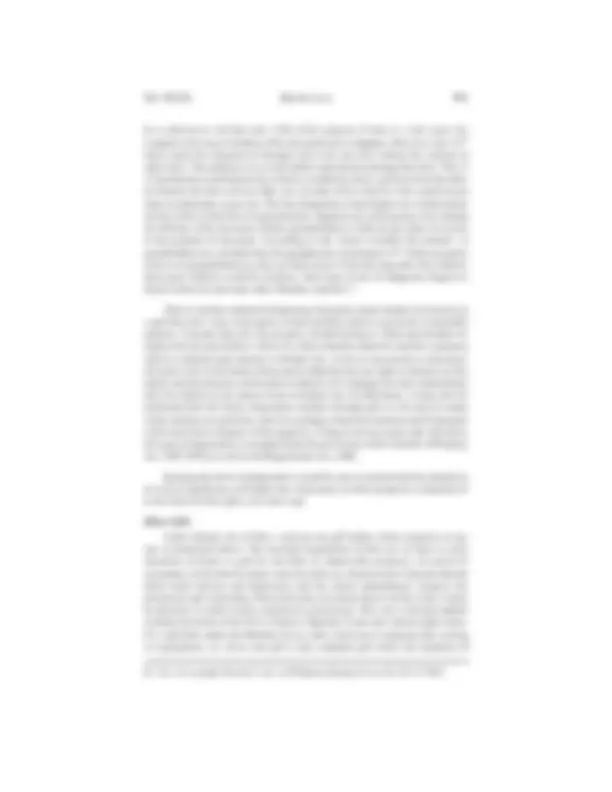



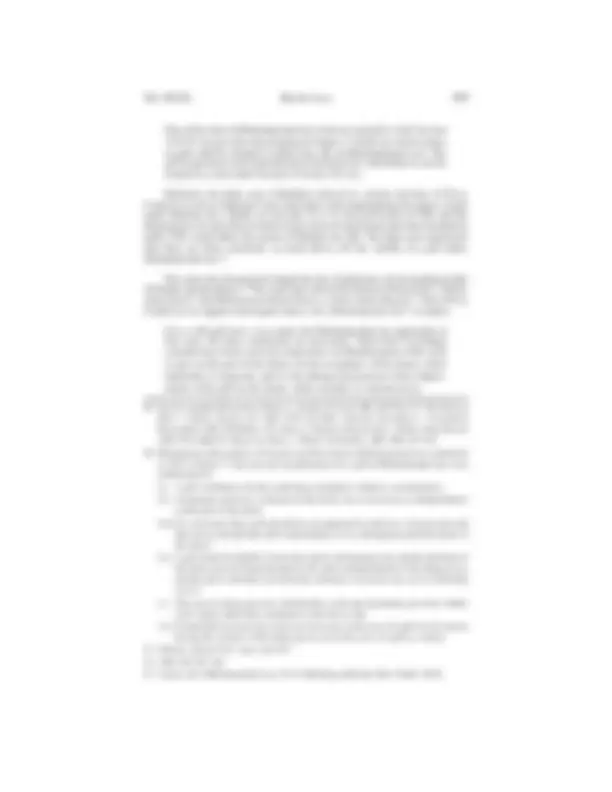

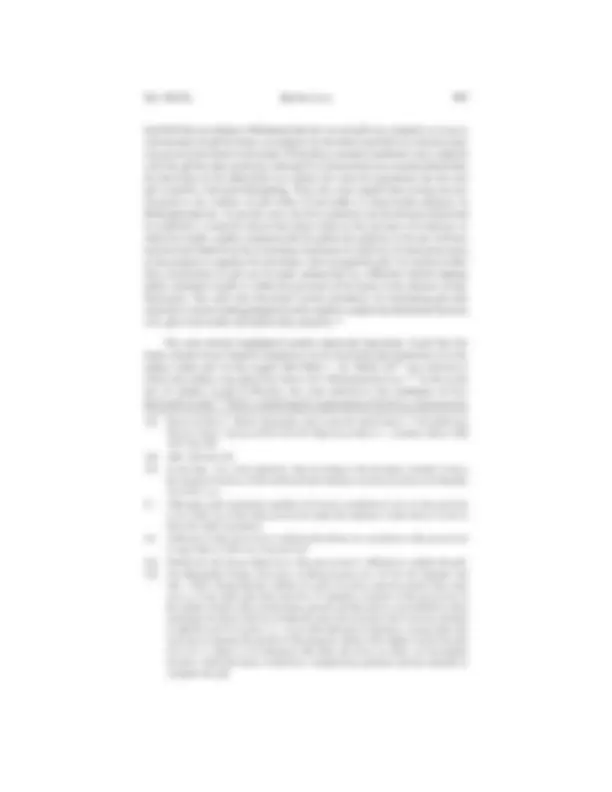
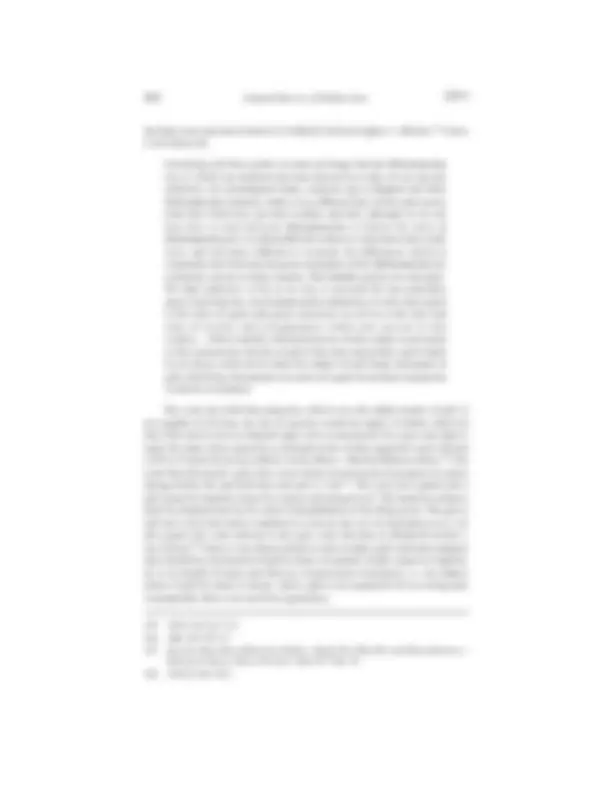









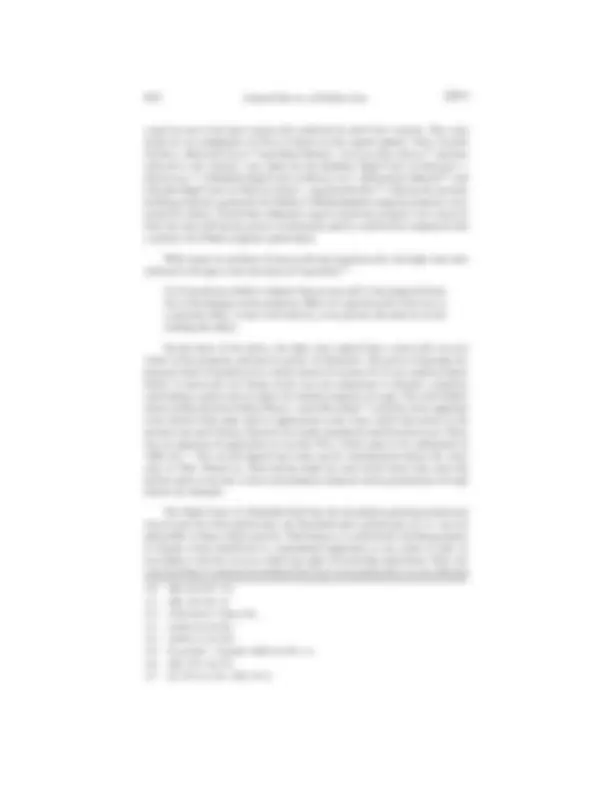


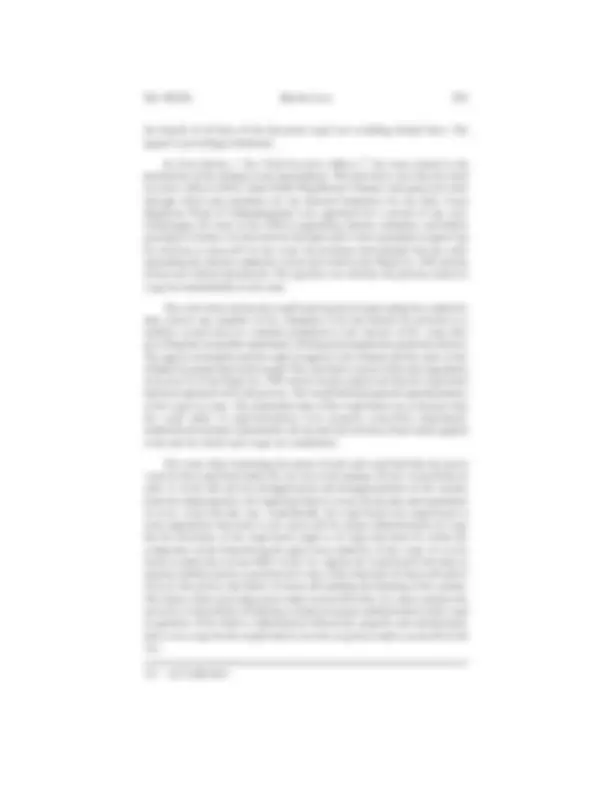

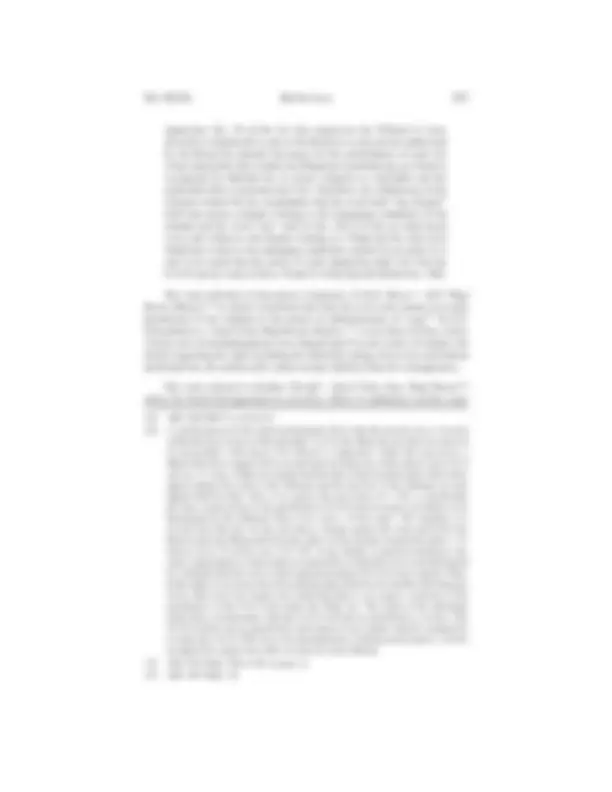

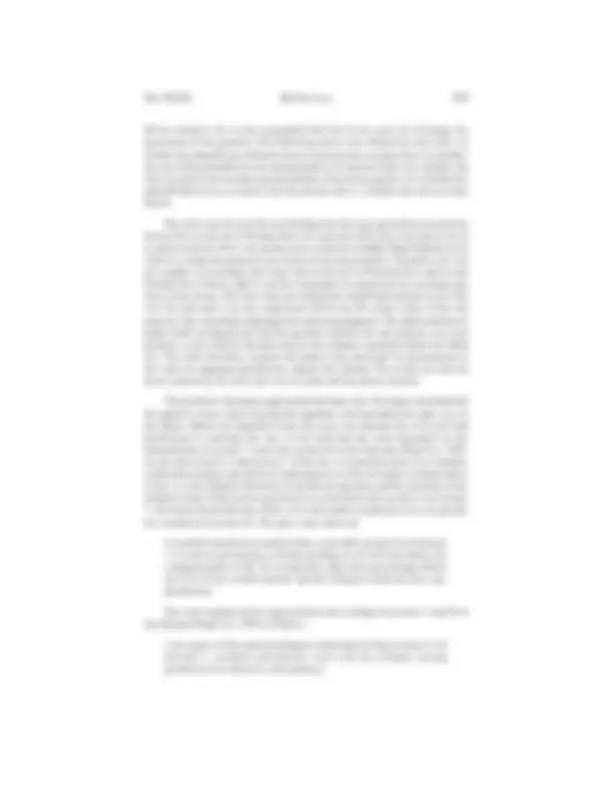






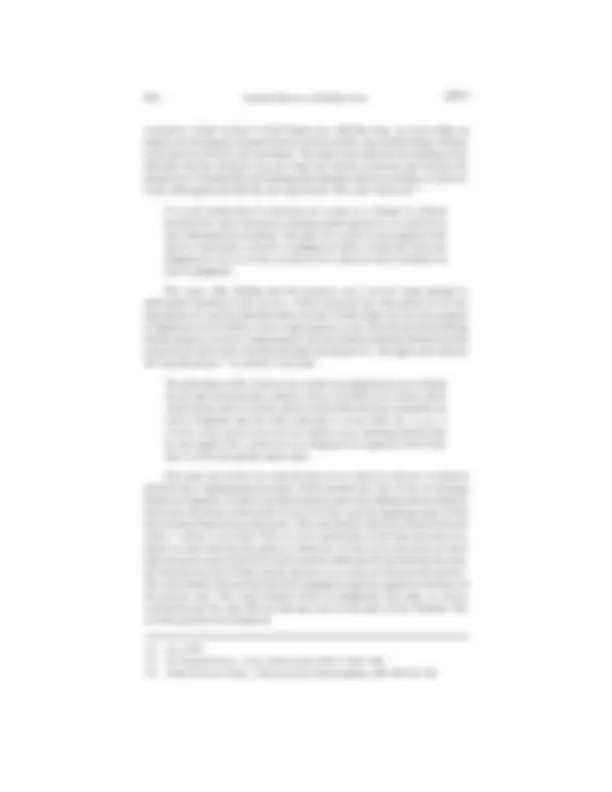
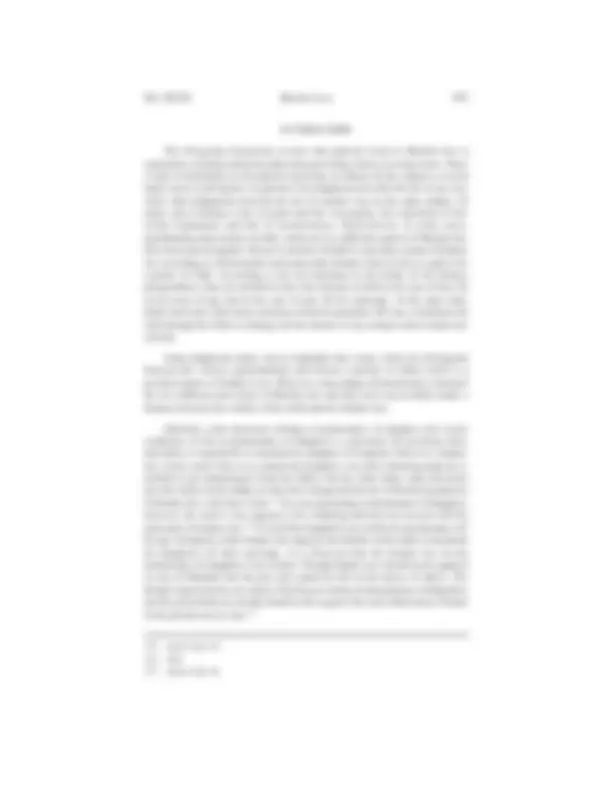

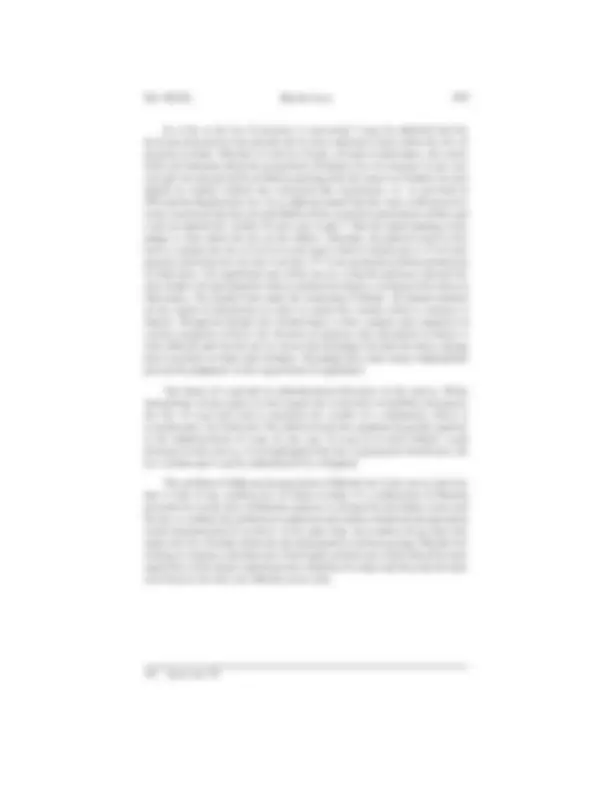



Study with the several resources on Docsity

Earn points by helping other students or get them with a premium plan


Prepare for your exams
Study with the several resources on Docsity

Earn points to download
Earn points by helping other students or get them with a premium plan
Community
Ask the community for help and clear up your study doubts
Discover the best universities in your country according to Docsity users
Free resources
Download our free guides on studying techniques, anxiety management strategies, and thesis advice from Docsity tutors
muslim law study notes for examination
Typology: Lecture notes
1 / 60

This page cannot be seen from the preview
Don't miss anything!





















































Furqan Ahmad Ô
V.R. KRISHNA IYER J in his famous judgment, Yusuf v. Swarrommaa^1 had observed that when judicial committee of Downing Street interpret Manu and Mohammad of India and Arabia, marginal distortions are inevitable. He had further observed that the view that the Muslim husband enjoys an arbitrary and unilateral power to inflict instant divorce does not accord with Islamic injunctions. The statement that the wife can buy a divorce only with the consent of or as delegated by the husband is also not wholly correct. Indeed, a deeper study of the subject discloses a surprisingly rational, realistic and modern law of divorce. It is true that no other aspect of law is so distorted as law of Islam in India.
This distortion is not due to lay men alone but also due to lawmen, particularly leading lawyers and judges who have misunderstood the true essence of Islamic law. This misunderstanding is the legacy of British judge writers like Mulla and McNaughten who even without reading any primary book of Islamic law had delivered judgments on the subject with motivated intention and ulterior motive. At the same time, the shameful practice of some Muslims to treat their women as a commodity contrary to the teachings of the Prophet is also one of the root causes to create misunderstanding about the Islamic law. Our uneducated moulvis who delivered fatwas from local mosques without understanding the subject and the problem, but to please the affluent clients, also aggravate the problem. This survey comprises of cases which give a message towards this end. The survey contains both law of status as well as law of property. The cases covered under law of status are divorce, maintenance, guardianship, custody of child and adoption. The law of property comprises of cases relating to gift, will, inheritance and waqf.
II LAW RELATING TO STATUS
Nikah (Marriage)
Puberty vis-à-vis consent of daughter
The nature of marriage under Muslim law states that if the mature party wants to live together with nikah , they are enjoying the freedom for their choice and no
interference from any side is advisable until it adversely affects social order of the community or society. No demarcation line is drawn in order to obtain puberty (majority) of the boy or girl, i.e. no fixed age is prescribed, as it depends on the physical growth of a boy or a girl according to the climatic situation of a place, and that is why attaining puberty is the essential condition for marriage and not any fixed age. If below puberty, a marriage is contracted by the guardian, the marriage can be revoked by girl after attaining puberty. In Noor Saba v. State of Bihar , 2 the question was whether a girl below 18 years age could marry without the consent of her parents. The girl eloped with the boy whom she loved and wanted to marry under apprehension of ill-treatment of her father, who did not allow her to marry the boy. While she remained with the boy, she married in presence of witness and qazi. A case was registered by bride’s father asserting that his daughter had been evicted away by respondent (the girl’s husband).The bride appeared before chief judicial magistrate (CJM) and recorded her statement that she eloped with respondent and stayed with his relatives till her marriage was solemnized with respondent. The medical examination assessed the girl’s age between 19-21 years. The petitioner carried pregnancy of about 3 months.
Keeping in view the above facts, the case was dismissed by the CJM. On appeal, the division bench of Patna High Court referred to Mullah’s Principles of Mohammedan Law^3 as well as Tayabji’s Muslim Law^4 where it is stated that every Mohammedan of sound mind is permitted to enter into contract of marriage after attaining puberty. The explanation of puberty is given as completion of 15 years of age in the absence of evidence to contrary. Similarly, Taybji is also of opinion that a girl reaching the age of puberty can marry without consent of her guardian. Both Mullah and Tayabji are of the opinion that a marriage is to be presumed on acknowledgement of either party to the marriage. The court held that it was to be presumed that the girl out of her own free will married the boy, which fact had also been admitted not only by the husband but also the mother. The division bench referred to the decisions of the Supreme Court in Naresh Shridhar^5 and Mrs. Tayara Begum,^6 where Mullah’s Mohmdan Law was relied upon.
Considering the facts, court held that in the instant case, the girl had attained puberty and married the boy as per her personal law and had even conceived. It was in best interest of parties to set the wife free so as to enable her to join her husband and mother in law.
Under the existing law, before puberty, a minor girl/boy cannot marry without the consent of their father/guardian. This is the reason why no water tight
2 2013 (3) PUR 460. 3 M. Hidyatullah (ed.) Mulla, Principles of Mohammedan law 282 (N.M. Tripathi PVt. Ltd. Bom. 15 th^ edn., 1977) 4 Faiz Hassan Badruddin Tyabji, Muslim Law: The Personal Law of Muslims (N.M. Tripathi Pvt. Ltd., 3rd edn., Mumbai, 1940). 5 Naresh Shridhar Mirajkar v. State of Maharastra, AIR 1967 SC 1_._ 6 Mrs. Tahra Begum v. Sate of Delhi, 2013(1) RCR (Civil) 798.
women by Islam. Pakistan’s Supreme Court in Khurshid Bibi^8 upheld this right and the Pakistani women are availing this privilege, but not in India where the courts are reluctant to apply this principle. It may also be mentioned that there is also one form of divorce by mutual consent ( mubarat ). Though khula and mubarat are two different forms of divorce but because of misunderstanding or confusion between the two generally courts interpret them as complementary and supplementary of each other or consider them as the same. This misunderstanding is also found in the decisions which are discussed below. There is also one form of divorce known as faskh i.e. judicial separation. Under Dissolution of Muslim Marriages Act, 1939, women can obtain divorce from her undesired husband on certain grounds and the last ground is “any other ground prescribed or valid by Muslim law”.^9
When khula is already an established ground under Islamic law through which a woman can get rid of her undesired husband and the history of the 1939 Act shows that this legislation was brought to provide relief to victimized women, 10 why, under clause (ix), the courts do not cover khula as a valid ground under Muslim Law for giving divorce initiated by women. In Dr. Syeda Fatima Manzelat v. Mr. Syed Sirajuddin Ahmed Quadri ,^11 the issue before the Andhra Pradesh High Court was whether cruelty with wife and failure to provide maintenance to wife is sufficient ground for wife to obtain divorce from such undesired husband under Islamic law. In this case, after marriage, the husband and wife lived both in India and abroad for about two decades. A girl child was born through this wedlock. After sometime, wife filed a petition to obtain khula under section 2(i) and (viii) of the Dissolution of Muslim Marriages Act, 1939. She alleged that the husband and his close relatives had taken away all the gold ornaments and she was subjected to physical and mental harassment. A detailed account of the events that are said to have taken place for about 15 years, was furnished and on the breakdown ground wife prayed for a decree of divorce. The husband denied all the allegations.
The trial court framed five issues a) whether the respondent treated the petitioner with cruelty and failed to maintain the petitioner and her daughter and petitioner was entitled for dissolution of marriage; b) whether the petitioner was entitled for return of jewelry of 24 tulas; c) whether the petitioner was entitled for an amount of Rs. 2 lakhs which was spent by her parents for marriage; d) whether petitioner was entitled for an amount of Rs. 3 lakhs paid to the respondent towards goda joda ; e) whether the petitioner was entitled for Rs. 6 lakhs towards permanent alimony. After examining the evidence on record, the court dismissed the petition. Consequently, the wife knocks the door of High Court of Andhra Pradesh.
The high court, after hearing the parties, observed that under Muslim Law, marriage was merely a contract. Even at the time of marriage, various contingencies
8 Mst. Khurshid Bibi v. Muhammad Amin , PLD 1967 SC 97. 9 Dissolution of Muslim Marriages Act, 1939, S. 2 (ix). 10 See Furqan Ahmad, “Role of Some Notable Indian Muslim Jurists towards the Development and Reform of Muslim Personal Law in India”, 34 JILI 563 (1992). 11 2013(5) ALD 298; 2013(5) ALT675.
that would ensue, in the event of divorce, are required to be taken care of. The male spouses are given almost unbridled freedom to put an end to the marriage by pronouncing talaq successively for three times. However, similar freedom is not available to a woman spouse. In case the woman spouse intends to walk out of the marriage, she has to take recourse to the provisions of the Dissolution of Muslim Marriages Act, 1939. The court found that as the wife had initiated a case for divorce under the provisions of the section 2(ii) of the Act of 1939 for which she is entitled according to law. The appeal, therefore, was allowed and the order of family court was set aside.
The decision of the court is correct according to the facts and circumstances of the case. However, it may be submitted that the nature of Muslim marriage clearly shows that marriage is a combination of ibddat (worship) and moamlat (dealings). Marriage is not merely a civil contract because three essential ingredients of Muslim marriage are: ijab , qubul and mehr (offer acceptance and consideration). It may be said to be a sacramental contract. The parties, their well wishers and arbitrators as well as courts should not leave any stone unturned to save the marital tie. The dissolution of marriage is allowed as a last resort. Prophet himself denounces the use of talaq and says “the most detestable thing which is permitted in the eyes of god is divorce”. 12 At another place, He says, “the divorce shakes throne of god”. 13 Quran itself provides a very exhaustive, fair and detailed procedure for divorce which is based on break down theory of divorce now found in place in all contemporary civil laws. Therefore, the observation of the learned judge in this case that a man has an arbitrary power of divorce has no relevance under Islamic law of divorce. Similarly, women have not given right to separation parallel to men is also a misunderstood concept. Unfortunately, the learned judge in this case could not notice any judgment of Krishna Iyer J on the interpretation of Islamic law of divorce. 14
As discussed above, wife has right of khula equal to man’s right to talaq for that she has complete freedom equal to man with some procedural difference. It is not a bargain and it is misunderstood concept. The court in this case could not appreciate the differences between khula (wives independent right to divorce) and mubarat (divorce obtained by mutual consent of parties). The judge decided the case of judicial divorce under the spirit of Dissolution of Muslim Marriages Act, 1939, in favor of granting divorce to wife from her undesired husband and deviated from family court stand and, therefore, he should be appreciated for same. It may also be mentioned that under Islamic law, all the gifts, jewelry and cash and other customary gifts which were received by wife at the time of marriage or during subsistence of marriage whether they were gifted by her own parents or relatives and friends, or her husband’s parents or relatives and friends, must be given back to wife as and when she demands whether they are kept with husband
12 Sulaiman-bin-al-Ashathashaisthanee Abu Daud, Sunnan 1:26 (1982). 13 Ahmad A. Galwash, The Religion of Islam 117 (1945). 14 Supra note 1.
The issue before the Madhya Pradesh High Court was whether trial court rightly rejected applicant’s application under 127 of Cr PC. The court observed that after commencement of the Act, the applicability of sections 125 to 128 Cr PC was not excluded and option was still with the parties to take recourse under these statutory provisions. The court observed that it was the option to the parties to take recourse under section 125 to 128 of Cr PC even on filing an application under section 3(2) of the Act. Bare reading of section 5 of the Act of 1986, showed that if divorced Muslim woman or husband, as the case may be, on notice on the first date of hearing opted to take recourse or wanted to proceed under sections 125 to 128 of Cr PC, the court cannot restrain them from the said recourse, and cannot direct them to take recourse only under the provisions of the Act. In addition, the high court also relied on the constitution bench judgment of Danial Latifi^18 which had held that the provisions of section 125 of Cr PC had been compared with reasonableness of the provisions of the said Act and concluded as under: 19
i) A Muslim, husband is liable to make reasonable and fair provision for the future of the divorced wife, which obviously includes her maintenance as well. Such a reasonable and fair provision extending beyond the iddat period must be made by the husband within the iddat period in terms of section 3(1)(a) of the Act.
ii) Liability of a Muslim husband to his divorced wife arising under section 3(1)(a) of the Act to pay maintenance is not confined to the iddat period.
iii) A divorced Muslim woman who has not remarried and who is not able to maintain herself after the iddat period can proceed as provided under section 4 of the Act against her relatives who are liable to maintain her in proportion to the properties which they inherit on her death according to Muslim Law from such divorced woman including her children and parents. If any of the relatives, being unable to pay maintenance, the Magistrate may direct the State Waqf Board established under the Act to pay such maintenance.
iv) The provisions of the Act do not offend Articles 14, 15 and 21 of the Constitution of India.
The high court also pointed out that the law laid down in Shah Bano Begum^20 by the constitution bench has been approved while declaring the Act of 1986 as intra vires. In Danial Latifi^21 the Supreme Court concluded that under the Act of 1986 in section 3(1) (a), the words “reasonable and fair provision” and “maintenance” are having two distinct areas. Section 4 further offers a reasonable provision for maintaining a divorced Muslim wife by the family members or by the waqf board, as the case may be, in the circumstances so prevalent. The 18 (2001) 7 SCC 740. 19 Ibid. 20 (1985) 2 SCC 556. 21 Supra note 18.
high court concluded that as per the precedents and in the light of the codified provisions of the Act of 1986, it was to be held that application filed by a divorced Muslim woman under section 3(2) of the Act would not debar her to take recourse of section 125 to 128 of Cr PC which is a secular provision irrespective of any religion or caste.
The court held that the applicant had filed an application under section 127 of Cr PC seeking alteration of the allowance awarded to her by the trial court about two decades before on an application under section 125 of Cr PC. According to courts finding that it was not brought on record that after service of notice, husband has submitted any option or declaration to opt for provisions of the Act. In such circumstances, since the wife herself opted to proceed as per section 125 to 128 of Cr PC then the court cannot direct that such application is not maintainable in view of commencement of the provisions of the Act.
The court was also of the view that after two and half decades if the application for alteration of the allowance was relegated for decision of the trial court, it would take some time for decision, which would not be justifiable for a divorced wife who is waiting for alteration of the amount for about half of her life span. Thus, the court opined that the amount of maintenance can be quantified by the high court itself and trial court should not decide on maintenance again. The court, therefore, directed that the amount of maintenance would be payable from the date of the order passed by the trial court. The petition filed by the wife was allowed and the orders passed by the trial court as well as the revisional court were set aside. The applicant was held entitled to receive an amount of Rs. 2000 per month towards maintenance from the date of the order passed by the trial court.
It may be submitted here that the high court had rightly observed that the alteration of maintenance allowance from trial court was in order to save her from inconveniences and delay in justice which had already occurred. However, duality of reliefs under Cr PC and the Act should be avoided only due to drafting flaws in the latter legislation and a single recourse should be made available so as to grant finality to matters and reduce number and cost of litigation.
Farhan Haji Gafar Gudda v. Rijwanaben Usmanbhai Patel^22 further highlights the dual regime of Cr PC as well as the Act, through which a wife is entitled to get maintenance from her ex husband. In the instant case husband divorced his wife who was staying separately after divorce with her minor son born from the wedlock with the divorced husband. Unable to maintain herself and her minor son, she filed an application seeking maintenance for herself and her son under section of Cr PC. Maintenance was awarded both for wife and son. The aggrieved husband filed petition, against order of magistrate, before High Court of Gujarat. The issues before court were: (i) whether the divorced women was entitled to get maintenance
22 (2013) 3GLR 2007.
Referring decision of Shabana Bano v Imran Khan^26 and after hearing the petitioner, the high court held that the order by the magistrate was no more res integra and apex court had settled the issue and clarified the legal position. The high court held that since the order of magistrate was in consonance with the observations made by and legal situation clarified by apex court, the petition was rejected.
In Ilyas Haji Abdul Sattar Guruji v. Tahera Suleman Bhagat ,^27 the question was whether a divorced Muslim woman can claim maintenance from her husband for post- iddat period even if she had been paid lump sum maintenance earlier either in judicial proceedings or through settlements. The High Court of Gujarat relied upon the observation of Sabana Bano 28 in which it had been held that a divorced Muslim wife’s maintenance petition against ex-husband filed under section 125 of Cr PC before the family court would be maintainable irrespective of absence of any application under section 5 of the Act, till she does not remarry. It was observed:
Her entitlement to maintenance continues even for post iddat period as long as she does not remarry. It cannot be disputed that divorced wife is entitled fair and reasonable maintenance to ensure that she is not rendered destitute after divorce. She will be entitled to fair and reasonable maintenance for her future life till she re-marries. Under the circumstances, even if earlier some lump sum amount has been paid towards future maintenance and it is found to be not fair and reasonable and it is found that she is unable to maintain herself, still she can file the application for maintenance under Section 125 of the Code of Criminal Procedure.
The high court held that so far as the amount of maintenance to the minor daughter under section 125 of Cr PC was concerned, in view of the decision of the Supreme Court in Noor Saba Khatoon v. Mohd. Quasim , 29 the right of the minor children staying with their divorced mother to claim maintenance under section 125 of Cr PC from their father having sufficient means till they attain majority or in case of females till they get married by section 3(1) (b) of the Act was recognized. According to the facts and circumstances and reasons stated above, it was held that only a sum of Rs.2500/- had been awarded to wife and daughter towards their maintenance, which in these hard days and price rise seems to be unreasonable and, therefore, the court declined any interference with the order passed by the family court, in exercise of revisional jurisdiction. Thus, the application of the husband was dismissed. Unfortunately, the husband’s plea that the amount already paid as lump sum should be adjusted towards settlement of maintenance dispute was also turned down.
26 2010) 1 SCC 666. 27 LNIND (2013) Guj 960. 28 Supra note 26. 29 AIR 1997 SC 3280.
Another case pertaining to maintenance of wife came before Allahabad High Court in Rafiquddin v. Kishwar Jehan^30 in which it was contended that in divorcee’s case why Cr PC is preferred in lieu of the special legislation. The Magistrate, after taking into consideration the provisions of the Act of 1986, ruled that despite the provisions of the Act there was no bar to the grant of maintenance under Cr PC, to Muslim divorced wife after relying upon Denial Latifi^31 case. The order was challenged in a criminal revision which was dismissed. The aggrieved husband approached the high court. The issues before the high court were: whether the Muslim women, after enactment of the Act, are entitled to claim maintenance from her husband under section 125 Cr PC after expiry of period of iddat. The high court was of the view that on the basis of the facts, the magistrate should have proceeded to decide the application in accordance with the provisions of the Act, even if the application was moved under section 125 Cr PC.
As the provision was available in section 3 of the Act to deal with maintenance of a Muslim woman divorced by her husband the order passed by the magistrate granting maintenance to wife in terms of section 125 Cr PC was not sustainable and was based on misinterpretation of provisions of the Act and the law laid down by apex court in Denial Latifi^32 case. Consequently, the order confirming the order of magistrate in revision to the extent of grant of maintenance to wife would also not be sustainable. Keeping in view the above facts and circumstances, the high court allowed the petition and the matter was remanded back to the magistrate concerned to decide the matter afresh in terms of provisions contained in the Act so far it relates to the question of grant of maintenance to wife as a divorcee.
It may be submitted that a judge of Allahabad high court beautifully resolved the controversy and long standing debate over scope of Cr PC and the Act, in case of maintenance of Muslim wife and closed two gates of entry which has become a source of exploitation of litigants and their relatives. The judgment indicates a sound understanding of the ratio given in Daniel Latifi^33 case vis-a-vis historical background of Muslim Women’s Act, 1986 along with its object and reasons for the enactment.
Maintenance of unmarried daughter In Smt. Fousia Banu, Salma Banu Alias mumtaz Arshiya Sawar and Mohammed Shabaz v. Mohammed Saleem ,^34 the High Court of Karnataka had to decide the dispute regarding unmarried daughter’s maintenance since the provision of Cr PC which deals with maintenance till attaining the majority. The Islamic law imposes liability on father to maintain his unmarried daughters even after attaining majority and similar provisions have been made in the Act. The family court had dismissed the unmarried daughter’s claim for maintenance. The issue before high
30 2013(4) ADJ708 , 2013(5) ALJ 85. 31 Supra note 18. 32 Ibid. 33 Ibid. 34 ILR 2013 Kar 6009.
allowed the appeal against the order setting aside the order of maintenance on ground that talaq had been given by the husband to the wife, and therefore, the wife’s application was not maintainable. The wife approached the High Court of Bombay. The court, after describing the relief provided under various provisions of the Domestic Violence Act, 2005 vis-à-vis other legislations, opined that cumulative effect of these provisions showed that if remedies were available under section 4 of the Act, it would not obliterate and defuse the provisions of section 12 of the Domestic Violence Act.
The high court was also of the view that if the husband intentionally divorced the wife, his liability to maintain the wife and children till her remarriage cannot collapse. At the same time, court stated that because in this case the judicial magistrate had already held that the divorce was not proved as the husband had extended single talaq to the wife by saying “ Parvin mai tujhe talaq deta huun ” which was disputed by the wife.
The high court referred the full bench decision in Dagdu Chotu Pathan^38 where the legal position of talaq had been explained. The bench, after considering the provisions of section 125 of Cr PC and the provisions of the Act, observed that for eligibility of entitlement of wife’s claim to maintenance, the factum of talaq and stages it has preceded should also be proved before the court, if disputed by the wife. The mere intention of the husband cannot be accepted to be a valid talaq. The court further refereed to the apex court in Shabana Bano^39 and Daniel Latifi , 40 explaining the liability of the husband to maintain his wife. It further observed that talaq must be a reasonable cause and should not be at the whims and fancies of the husband and, therefore, the husband had to maintain two children and the whims of the husband would not be permitted to deflate the provisions of Domestic Violence Act which provides a room to claim maintenance notwithstanding the effect of section 4 of the Act. Accordingly, the high court held that the provisions of the Domestic Violence Act would operate for the divorced Muslim wife in terms of section 12 of the Domestic Violence Act. The court, however, showed its reluctance to accept the evidence of talaq. Consequently, the order of ASJ was set aside.
Since domestic violence nowadays has become a common phenomena, which is completely prohibited by Prophet of Islam through its precepts and precedents, any remedy provided to the victim women can never be considered against the spirit of Islamic law. However, the question here is that if divorce is already affected and admitted then husband and wife should not be advised to stay together for any purpose because they have no legal relationship at all and Islam does not like to leave unattended a poor wife on the charity of cruel husband who would time and again try to torture her. Therefore, Islamic law provides remedy to divorcee and that is why the Act came into being whose validity is accepted by the Supreme Court. As far as the children’s maintenance is concerned, in all the circumstances,
38 2013 (3) Bom. CR (Cri) 388. 39 Supra note 26. 40 Supra note 18.
for boy till the age of majority and for the girl till her marriage the father is liable to maintain them irrespective of the fact whether the mother is influential and rich. It may be submitted that, without any bias and strict adherence to a particular law, paramount consideration should be the welfare of wife and children. Accordingly, the two legislations should be given harmonious construction. It may further be submitted that taking shelter under the law of divorce can never be in consonance with the spirit of Islamic law in order to avoid the responsibility to maintain wife and children and such type of divorces may be termed as abuse of law. Therefore, the courts reluctance to admit such flimsy divorces is in accord with the spirit of Islamic law.
Maintenance under bigamous marriages
In Abdul Aziz v_. Shajitha_ , 41 the husband was directed to pay monthly maintenance allowance at the rate of Rs. 400/- to the wife and Rs. 300/- for each child. The husband married another woman in the presence of the first wife and children. Therefore, the first wife and her children claimed enhancement. The family court directed the husband to pay enhanced maintenance allowance at the rate of Rs. 5,000/- each per month to the respondents (wife and each child). In the revision petition filed by the husband, the question was whether the quantum of enhancement determined by the family court was justifiable. The court observed that the husband remarried when the earlier marriage was subsisting, that the husband was so confident of his income and that is why he married again and he was under an obligation to maintain his first wife and two children. It was true that the Muslim personal law permits marriage with more than one woman, two, or three, or four; while the earlier marriages are alive. But, under the guise of subsequent marriages, the husband cannot escape from the statutory liability to pay maintenance allowance to the wife and the children from the earlier marriage or he cannot treat them unequally. Certainly, the wife and the children of the earlier marriage have a right to live with the standard of life at par with the standard of life of the husband and the second wife and children. The court stressed that the children born in the earlier marriages were entitled to get the same standard of education as that of children born in the subsequent marriages and father was liable to provide it equally. The court referred to the Holy Quran reads thus: 42
In the Name of Allah, The Most Gracious, the Most Merciful.
41 2013 (3) KLJ 546. 42 Sural An-Nisa (The Women) IV, (Ref: Translation of the meanings of The Noble Quran in the English language by Dr. Muhammad Taqi-ud-Dinal-Hilali (Formerly Professor of Islamic Faith and Teachings, Islamic University, Al-Madinah Al-Munawwarah ) And Dr. Muhammad Muhsin Khan (Formerly Director, University Hospital, Islamic University, Al-Madinah Al-Munawwarah ).
guardian-mother for awarding maintenance against father. The lower court, after considering the pleadings of the parties and the evidence, came to the conclusion that minor daughters were entitled to maintenance from their father. Aggrieved father initiated criminal revision. The question before the High Court of Uttarakhand was whether the out of court settlement entered into between the wife and husband will also bind their daughters so far as the payment of maintenance allowance to them was concerned.
The court referred to the judgment of Supreme Court in Nagendrappa Natikar , 45 where it was observed:
Section 125 Cr PC is a piece of social legislation which provides for a summary and speedy relief by way of maintenance to a wife who is unable to maintain herself and her children. Section 125 is not intended to provide for a full and final determination of the status and personal rights of parties, which is in the nature of a civil proceeding, though are governed by the provisions of the CrPC and the order made under Section 125 CrPC is tentative and is subject to final determination of the rights in a civil court.
Section 25 of the Contract Act provides that any agreement which is opposed to public policy is not enforceable in a Court of Law and such an agreement is void, since the object is unlawful, any order passed under Section125 CrPC by compromise or otherwise cannot foreclose the remedy available to a wife under Section 18(2) of the Act.
The court observed that although the remedy available to the daughters was not available under section 18 of the Hindu Adoptions and Maintenance Act, 1956 in as much as they were governed by the Muslim law, nevertheless the principle underlying will govern their destiny. The court referred to Mahesh Chandra Dwivedi^46 case where it was held that wife was not debarred from claiming maintenance under section 125Cr PC even if the husband had made lump sum payment to his wife in the proceedings of divorce by mutual agreement. It also referred to Ram Narayan Gupta , 47 where maintenance was granted in terms of compromise between the parties.
After referring the various high court decisions and statutory provisions, the court held that children were not party to the earlier proceedings between the husband and wife and, therefore, the wife’s subsequent claim for maintenance allowance of her daughters from her husband, allowed by the family court was valid. It was further held that if the husband and wife entered into an out of court settlement between them, the same will not stop the daughters from claiming maintenance allowance from their father as the basic principle of law states that no compromise can be done which is adverse to the interest of a minor_._ The court
45 Nagendrappa Natikar v. Neelamma , AIR 2014 SC 2875. 46 Mahesh Chandra Dwivedi v. State of Uttar Pradesh (2009) CrLJ 139, (2008) ILR 3 All
47 Ram Narayan Gupta v. Smt. Laxmi Devi 2007 (7) ADJ 266.
observed that “If a compromise has taken place on behalf of minor daughters, the same carries no meaning, if the compromise is prejudicial to their interest.” 48 The court finally laid down that minor daughters were entitled to claim maintenance from their father in their own rights. The criminal revision filed by the father had, therefore, no meaning and the same was dismissed.
Maintenance of daughter in all the cases till her marriage is the legal liability of father under Islamic law and in no case he can get rid of this liability. However, a settlement out of court between the mother and father even about their minor daughters is recognized though not appreciated under Islamic law. In this case, when mother had received the money for maintenance of daughters, this consideration should have not been completely ignored to encourage the judicial proceedings further. In any case, the interest of minor daughters is above all and it should not be compromised and, to this extent, the court’s view may be appreciated, but the Islamic law has ample scope to protect and maintain the daughters by their fathers, not only till attaining majority but till their marriage.
Wilayat and Hizanat Under the Islamic law, father is a natural guardian and, in his absence, the grandfather, and in his absence, the paternal uncle are natural guardians and then only mother may be guardian of a minor child. However, one thing is clear: that in Islamic law wilayat (guardianship) and hizanat (custody of child) are two different concepts which are at times misunderstood and are taken to be the same. Father or any other person as per the list of guardians prescribed under Muslim law may be the guardian but at same time mother and mother’s mother and some female relatives as prescribed under Muslim law have the right to custody of the child which is a very peculiar concept of Islamic law known as hizanat. The lawmen should not get confused while interpreting these two concepts and mix them together.
Custody of minors In Aisha Rahman Ali v. Inspector of Police , 49 the issue of custody of child and guardianship was involved under section 9 of the Guardians and Wards Act, 1890, as well as personal laws of the parties. The brief facts were that marriage between the parties was solemnized at Dubai. After marriage, the couple was living jointly at Australia. Two children were born out of their wedlock. They got separated after some time. The wife sought the custody of daughters who were under the custody of the husband. In her support, she referred to Gohar Begam v. Suggi alias Nazma Begam,^50 wherein the apex court had permitted custody of the child in the hands of the mother, informing that though the mother had a right under the Guardians and Wards Act to seek the custody of the child, the same would not be justification for denying her the right of custody of the child under section 491 Cr PC.
48 Supra note 44 para 7. 49 2013(4) MLJ (Crl) 28. 50 AIR 1960 SC 93, 1960 (1) SCR 597.
attained the age of puberty. However, at the same time, there was no rule of Mohammedan law that he was entitled to that custody though he was unfit for the same. Therefore, the court had the power to appoint the mother or any other person whom it thought proper, guardian of the person of the minor, if the father, in its opinion, was unfit to be such guardian. As the paramount consideration in granting custody and guardianship was the welfare of the minor. The trial court had closely examined the issue, and had arrived at a conclusion that father was living abroad with the second wife and the child born through her, and the paternal grandmother also had to look after other grandchildren and family members were unfit to claim custody of the minor. Consequently, the appeal was dismissed.
It may be submitted that the decision is the replete with provisions of hizanat pertaining to Muslim law and the learned judge interpreted it with clear understanding of the law on subject without any confusion between the law of hizanat (custody) and wilayat (guardianship) provided under Islamic law.
Another case of custody of child was decided by Andhra Pradesh High Court in Md. Fayaz and Smt. Amthullah Bee v. Smt. R. Sabiha Begum.^53 In this case, an appeal was filed to seek custody of minor child by father as being natural guardian. The father of the child was married to the sister of the respondent and a child was born to them. The mother of the child met with an untimely death. A complaint was lodged alleging that the father, his parents and brother murdered the mother of the child. The respondent (sister of the deceased mother) demanded the custody of child under the provisions related to the custody of child under Islamic law. She pleaded that not only the father, but all his family members were facing trial for the offence of murder of her sister and, therefore, the minor child would not be safe in their custody.
The major issue for consideration before high court was whether the respondent was entitled to seek the custody of the child. After considering the facts and circumstances of the case as well as the Muslim law, the court observed that Muslim law governing the subject was not codified and the same was mostly in the form of commentaries of the jurists. Whether one goes by the general codified law or by customary law, the father, no doubt, was the natural guardian of the child, particularly, when the mother was no more. However, there were exceptions to this rule. If the father was facing the charge of causing the death of his wife, i.e. mother of the minor child, it was not at all safe to keep the custody of such child with him, at least, till the charge of his involvement in the death of his wife was removed. The court thus held that the maternal aunt of minor child was entitled for custody; however, the custody could not be unconditional or permanent and could extend only till the prosecution launched against father was finally decided. If he was acquitted, he would be entitled to get back the custody of child. On the other hand, if he was convicted, the maternal aunt would continue to act as guardian of child till she attained the age of majority. Even then, the father should be entitled to visit the child depending upon the nature of sentence which he may be required to serve.
53 2014(1) ALD 474.
It is submitted that the court did not appreciate the difference between hizanat (custody) and wilayat (guardianship). The most part of the Islamic law is not codified but it is drawn from the sources of Islamic law as the judges themselves admitted that it was found through commentaries of Holy Quran and Prophet’s traditions. Thus, before pronouncing the judgment, the legal literature on the subject should have been consulted to arrive at the correct conclusions according to personal laws of the parties. As noted above, there is a distinction between hizanat and wilayat. The custody of child in the absence of mother is given to other female relatives of the child as discussed earlier. Even in the absence of the reasoning given by the court with regard to father’s/ husband’s culpability for mother’s murder, the custody or hizanat of the child would have anyway gone to the other female relatives.^54
Another case Irshad Alam v. Isma Alam^55 decided by Allahabad High Court also pertains to the issue of custody of male child, where because of strained relationship between husband and wife, and out of fear and apprehension, the wife left matrimonial home along with her 6 year child. The husband divorced the wife and filed petition under section 25 of the Guardians and Wards Act, 1890 seeking custody of the male child. The respondent wife objected to this claim of custody of the male child by filing objections and simultaneously she also filed a petition. The question in appeal before the court was as to whether the father or mother should have the custody of the child.
The court, after considering the personal law as well as some provisions of Guardians and Wards Act, 1890, observed: 56
The custody of a minor child in Islam is called hizanat , which literally means the care of the infant (custody). As per the Shariat law that applies to Muslims, the father is considered to be the natural guardian of his children irrespective of sex, but the mother is entitled to the custody of her son till the age of 7 years and of her daughter till she attains puberty. Thus, under the Muslim law a male would attain majority when he reaches the age of 7 years and a female would attain majority on attaining puberty. Mulla, a well known author, in his commentary on Mohammedan Law has specified the grounds when a female becomes disqualified for the custody of a child under Section 354.
The court further observed that section 6 of Guardians and Wards Act leaves scope for the application of the personal law to which the minor is subject. Further,
54 In case of boy upto 7 years and in case of girl upto age of puberty, the list of these female heirs as their preference are found in every book of Muslim law as well as many judicial decisions reproduced it. Even in this survey here the Madras High court through his judge T. Raja reproduced and discussed it at length while deciding a case on custody of minor girl aged about 4 years. This is astonishing that one high court is fully conversant about the law and the other is full unknown. 55 2013(6) ADJ 8; 2013(5) ALJ 248; 2013 4 AWC3877All. 56 Id., para 18.